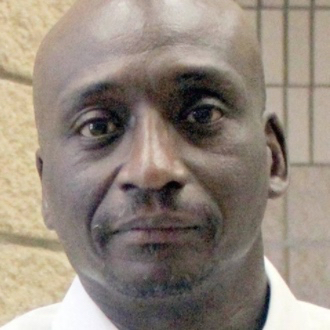Rascals case in brief
In the beginning, in 1989, more than 90 children at the Little Rascals Day Care Center in Edenton, North Carolina, accused a total of 20 adults with 429 instances of sexual abuse over a three-year period. It may have all begun with one parent’s complaint about punishment given her child.
Among the alleged perpetrators: the sheriff and mayor. But prosecutors would charge only Robin Byrum, Darlene Harris, Elizabeth “Betsy” Kelly, Robert “Bob” Kelly, Willard Scott Privott, Shelley Stone and Dawn Wilson – the Edenton 7.
Along with sodomy and beatings, allegations included a baby killed with a handgun, a child being hung upside down from a tree and being set on fire and countless other fantastic incidents involving spaceships, hot air balloons, pirate ships and trained sharks.
By the time prosecutors dropped the last charges in 1997, Little Rascals had become North Carolina’s longest and most costly criminal trial. Prosecutors kept defendants jailed in hopes at least one would turn against their supposed co-conspirators. Remarkably, none did. Another shameful record: Five defendants had to wait longer to face their accusers in court than anyone else in North Carolina history.
Between 1991 and 1997, Ofra Bikel produced three extraordinary episodes on the Little Rascals case for the PBS series “Frontline.” Although “Innocence Lost” did not deter prosecutors, it exposed their tactics and fostered nationwide skepticism and dismay.
With each passing year, the absurdity of the Little Rascals charges has become more obvious. But no admission of error has ever come from prosecutors, police, interviewers or parents. This site is devoted to the issues raised by this case.
On Facebook
Click for earlier Facebook posts archived on this site
Click to go to
Today’s random selection from the Little Rascals Day Care archives….
Click for earlier Facebook posts archived on this site
Click to go to
Today’s random selection from the Little Rascals Day Care archives….
‘We cannot give him back those years….’

newsobserver.com
Edward Charles McInnis
May 29, 2016
“ ‘On behalf of the State of North Carolina, I apologize to Mr. (Edward Charles) McInnis for the 27 years he had to spend behind bars for crimes he did not commit,’ McCrory said in a statement announcing the pardon. ‘While we cannot give him back those years of his life, I wish him well as he resumes his life as a free man.’ ”
– From “NC Gov. McCrory pardons Scotland County man” by Anne Blythe in the News & Observer (May 19) (text cache)
Another DNA exoneration – thanks yet again, North Carolina Innocence Inquiry Commission – and this time both District Attorney Kristy Newton and Gov. McCrory acted expeditiously and humanely.
I look forward to seeing the governor extend such sentiments toward Junior Chandler, who has now spent more than 29 years behind bars.
![]()
Chandler’s hopes rest with innocence project
May 6, 2013
When last we left Junior Chandler, his former appellate defender, Mark Montgomery, had asked North Carolina Prisoner Legal Services to look into the case.
But NCPLS requires the prisoner himself to request help, and that hasn’t happened. “Like a lot of the old-timers, Junior does not think they (NCPLS) are worth much,” Montgomery says. “There was a big shake up there a few years ago, and they are now very aggressive and as effective as anybody in post-conviction cases. I am going to encourage Junior (again) to ask for their help….”
Meanwhile, he has pitched Junior’s case to Christine Mumma at the N.C. Center on Actual Innocence.
Here’s the essential “evidence of actual innocence” that Montgomery offered Mumma:
“Lathern Hensley (a.k.a. Buddy Norton) was one of the adult mentally retarded riders on Junior’s bus. He and another woman testified that Junior did stuff, and they helped. They each got probation-only plea deals. I found Hensley, but his guardian wouldn’t let me talk with him. The Actual Innocence folks (with powers granted by the state) could insist on talking with Hensley. I think he would say that he was pressured into lying on the stand.”
This is just the latest long shot in overturning Junior’s wrongful conviction, and even if the Center on Actual Innocence agrees to take the case, the process is anything but swift. As the Center’s website cautions, “We counsel patience to inmates and their families during the investigative phase as the process of gathering additional documentation; identifying, locating and interviewing witnesses; and completing many other investigative tasks can take several years.”
‘Capturing the Friedmans’ didn’t capture the Kellys
June 26, 2013
The suburban New York child sex abuse case documented in the Oscar-nominated “Capturing the Friedmans” (2003) returned to the spotlight Monday, this time because of a review panel’s finding that Jesse Friedman had in fact been rightfully convicted.
Although the New York Times describes the Friedman case as having come “to symbolize an era of sensational, often-suspect accusations of child molestation,” many aspects – including the 1988 confessions of both the defendant and his father – make it an outlier to the epidemic of day-care cases of that era.
The review panel itself emphasized this distinction, the Associated Press points out:
“The Friedman case has drawn comparisons to the 1980s McMartin Preschool scandal, but the investigators said they ‘were in no way similar.’ In the McMartin case, the report noted, more than 200 preschool children described being sexually abused by teachers, but only after months of highly suggestive questioning by social workers working with prosecutors. The report noted in the Friedman case, the victims were more than twice as old as the McMartin preschoolers and many in the Friedman case disclosed abuse quickly.”
Regardless, there are similarities, too. In an interview with the Village Voice interview last month, Jesse Friedman had this to say about the young computer students who testified against him:
“When I was in prison, my hope always hung on the idea that, give it five or 10 years; once they get to college, once they’re actual adults, once they’re old enough to no longer be living at home with their parents in Great Neck, they will come forward and admit that they lied.
“When (journalist( Debbie Nathan came to visit me, she told me that most of the complainants in the McMartin case publicly affirm that they were raped and abused in the McMartin Preschool. Whereas that case has been thoroughly, completely vetted beyond all doubt that nothing happened. And yet the kids involved believe that they were abused. She said, ‘You really can’t hang your hopes on the idea that the kids know that they lied and that nothing happened. Because they might very well think that something happened.’ “
Do the now-grown child-witnesses in the Little Rascals case “know that they lied and that nothing happened”? Or does the shapeless memory of their supposed abuse remain forever sealed from self-examination?
‘Ritual abuse’ claims exempt from retraction?
 Sept. 14, 2015
Sept. 14, 2015
“Rising retraction rates reflect (in part) the fact that scientists, journalists and amateur watchdogs have begun scrutinizing research more closely….
“This heightened scrutiny – the very scrutiny that likely contributed to the retractions surge in the first place – could help reverse the tide, by providing a powerful disincentive to bad behavior. As more scientific misconduct is exposed and shamed, researchers who were previously tempted to play fast and loose with their data may now think twice.”
– From “A Scientific Look at Bad Science” by Bourree Lam in The Atlantic (September 2015)
“The increase in overall retractions is mostly because a higher percentage of journals have begun issuing retractions…. One reason it’s taken a while… could be that they had to develop the necessary guidelines for defining, detecting and dealing with ‘misconduct’….
“(One) study found that editors are retracting articles significantly faster now than in the past. We might be working our way towards a future in which fraudsters like (Diederik) Stapel won’t build up such massive bodies of literature before being unmasked. Their first or second will be caught, before they’ve done too much damage.”
– From “Scientific Retractions are on the Rise, and That May Be a Good Thing” by Rosie Cima at Priceonomics (June 24)
“Before they’ve done too much damage” – ah, if only that applied to the errant (and still unrepentant) authors and journal editors whose efforts lent credence to the prosecution during the “satanic ritual abuse” moral panic.











0 CommentsComment on Facebook